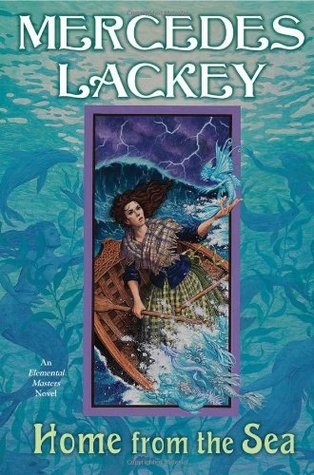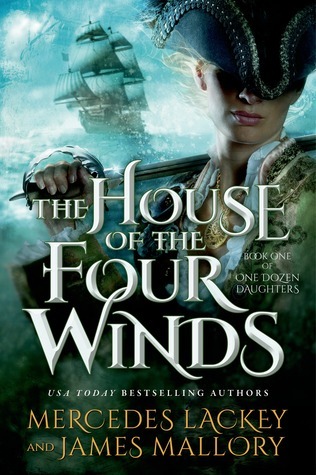 Shadows by Robin McKinley
Shadows by Robin McKinley Published by Penguin on September 26, 2013
Genres: Fantasy, Contemporary Fantasy
Pages: 356
Format: Hardcover
Purchase: Amazon | Barnes & Noble | Audible | Chirp
Add to Goodreads

Maggie knows something’s off about Val, her mom’s new husband. Val is from Oldworld, where they still use magic, and he won’t have any tech in his office-shed behind the house. But—more importantly—what are the huge, horrible, jagged, jumpy shadows following him around? Magic is illegal in Newworld, which is all about science. The magic-carrying gene was disabled two generations ago, back when Maggie’s great-grandmother was a notable magician. But that was a long time ago.
Then Maggie meets Casimir, the most beautiful boy she has ever seen. He’s from Oldworld too—and he’s heard of Maggie’s stepfather, and has a guess about Val’s shadows. Maggie doesn’t want to know . . . until earth-shattering events force her to depend on Val and his shadows. And perhaps on her own heritage.
In this dangerously unstable world, neither science nor magic has the necessary answers, but a truce between them is impossible. And although the two are supposed to be incompatible, Maggie’s discovering the world will need both to survive.
Review
It often seems to me that there are two distinct Robin McKinleys. There’s the lyrical, even poetic spinner of fairy tales like Spindle’s End and Rose Daughter and The Blue Sword, and the more contemporary fantasy voice which produced Dragonhaven and Shadows. What links the two together is McKinley’s approach to magic. In every book she writes, magic is unpredictable, incomprehensible, instinctive, and unknowable. It may follow patterns, but it doesn’t follow rules. This is magic the way M. K. Jemison believes it should be: “organic… mysterious, silly, weird” and definitely “not. Supposed. To make. Sense.”*
Shadows throws you in at the deep end, both in terms of its magic and in terms of its world. The teenage narrator, Maggie, uses slang words and concepts like “cobeys” and “silverbugs”, mostly without explaining them — and why should she explain them, when to her they are just part of what everyone knows? Newworld, where Maggie lives, is just similar enough to our world to make sense on the surface, and just different enough to leave you off balance. That’s completely appropriate, because the magic Maggie encounters has the same disorienting effect on her — literally as well as figuratively. You learn to understand Newworld the way you learned to understand the real world, or the way Maggie learns to deal with magic — through immersion and experience. That’s typical of McKinley’s worldbuilding, and in this case, it works brilliantly.
Maggie is a wonderful character, both like and quite unlike most of McKinley’s other heroines. I love her voice, which is completely authentic; her actions, speech, and relationships are all believable and realistic in context. She’s a typical teen in many ways: she goes to high school, she’s not very good at math, she’s thinking about college, she has a best friend, she uses slang a lot (including Japanese slang she picked up because another friend is Japanese.) In other ways she’s less typical: she volunteers at the animal shelter, she befriended a young immigrant — that Japanese friend I mentioned — shortly after he arrived in her school, and she’s essentially been a second parent to her younger brother since her father died when she was 10. Her relationships with both her brother and her mother are strong and loving, but no more perfect than Maggie herself. They bicker sometimes, as families do, but there’s no questioning the bonds between them.
Maggie is a lot stronger and braver than she thinks, but when weird things begin happening and she starts seeing creepy shadows that aren’t there — mostly in the vicinity of her mother’s new fiance/husband, Val — she refuses to believe or accept the evidence of her own senses, not just once but several times in a row. At the same time, she tries to minimize the time she spends around Val, so she won’t have to deal with whatever-it-is she isn’t seeing. I think that was the point at which McKinley really sold me on the character. Don’t we all try to convince ourselves that something we’ve experienced didn’t or couldn’t really have happened, because we don’t want to believe it? Of course, in the end — well, no, in the middle — Maggie has to accept the reality of the unusual things she sees and hears: to accept them, and learn to deal with them, and even to trust them.
It’s odd that the publisher’s description of the book doesn’t mention Maggie’s friends Jill and Takahiro (Taks), nor the animals, both mundane and magical, which play a substantial role in the book. Maggie’s love for and skill with animals is critical to her development as a character as well as to the plot as a whole. I really love Mondo, her overly-energetic herding dog. He’s all dog — McKinley steers well clear of anthropomorphizing any of the mundane animals — but he’s also a lovable and goofily comic character in his own right. McKinley always writes great animals, so the importance of Mondo and the other shelter animals didn’t come as much of a surprise.
Takahiro seems at first to be almost a minor character, but gradually and then rapidly increases in significance. He’s brilliant, geeky, a bit of a loner, and an expert at origami. I like him very much, but I admit to being startled twice by the direction(s) in which McKinley went with him. Maggie’s algebra book is another of my favorite characters — which won’t make any sense until you’ve read the book. Casimir, who is mentioned in the blurb, turns out to be both less and more important than he sounds; I wanted to know a little more about him. Jill is a great best friend to Maggie, and again, McKinley portrays their relationship with just the right amount of banter, mutual loyalty, and occasional disagreement.
You can guess from the blurb that there’s a romance in the book, but I loved that it came with an unforeseen twist. Or two. And that it’s truly a teen relationship — sweet and lovely and unexpected, with not a hint of the “forever-fated-soulmates” trope that seems so ubiquitous in recent YA fantasy.
One of the best aspects of the book is Maggie’s relationship with her stepfather Val. Adolescents are usually wary of accepting a new stepparent, and Maggie is no exception. In fact, at first her dislike of Val seems like nothing more than typical teen sullenness. But I loved that McKinley didn’t go in the obvious direction with this, despite initial appearances — and that Maggie eventually has to come to terms with Val as well as with the unusual things occurring in her vicinity.
Some readers may complain that the book doesn’t really end. It’s true, some things remain unexplained by the end — unexplained, but not truly unfinished. I found the ending very satisfying, and if there is no sequel, Shadows can certainly stand on its own. On the other hand, there’s plenty of room for a sequel or two.**
I’ll be honest, Robin McKinley is one of my favorite fantasy authors. I adore her fairy tale retellings, and The Blue Sword is one of my all-time favorites. But I’m less enamored of Dragonhaven, and that had me a little nervous going in to Shadows. If it isn’t evident yet from my review, I needn’t have worried; I thoroughly enjoyed Shadows. It’s entertaining, the characters are terrific, the worldbuilding and the magic are intriguing, and it certainly pulled me in and kept me turning the pages! More than that, McKinley’s storytelling artistry shines throughout the book.
*M. K. Jemison, “But but but — WHY does magic have to make sense?”
**Speaking personally, I’d love a sequel to Shadows, but that’s always a little dangerous with McKinley. I’m still waiting for Pegasus II, and I’ve heard rumors that there may even be a Pegasus III in the offing, so I’m not holding my breath for a hypothetical Shadows II. ETA: As of March 2024, there’s still no sign of another book of any description from McKinley. However, the last decade has been difficult for her personally, due to her husband Peter Dickinson’s illness and death and her own health issues, so while it is disappointing, it’s understandable.













































Wendy Darling
Wow, Lark–what a gorgeous review! People have been trying to get me to read Robin McKinley for ages, but I’ve never gotten around to her, but that beautiful and thoughtful opening passage to this review is extremely persuasive. I appreciated reading this so much, thank you. I think I might actually have a copy of this somewhere, so I’ll have to see if I can get to it soon.
Wendy @ The Midnight Garden
Lark @ The Bookwyrm's Hoard
Wendy, that is high praise indeed, especially from you. I… thank you. I’m speechless. Except to say that I would LOVE to get you hooked on Robin McKinley.
Heidi@Rainy Day Ramblings
I have never read this author, but you presented a strong case. I think I would enjoy Maggie, even though I am not a fan of slang. I like the sound of the characters and that she learns to accept her stepfather. Nice that the romance is realistic as well. I am going to have to check this out.
Lark @ The Bookwyrm's Hoard
I hope you enjoy it! I certainly did.
Stephanie Shepherd
I love Robin McKinley as well and this books sounds fantastic from the blurb and from your review! It’s funny your mention of sequels and that it is a bit sketchy with McKinley – She seems to be a if I feel it, I’ll write it but if not I won’t sort of writer which I can respect. But is also sometimes a bummer!
Lark @ The Bookwyrm's Hoard
McKinley is very much a writer for whom the story is in charge. This story came to her and insisted on being written, interrupting her writing of Pegasus II. Some writers can direct their writing consciously, but in McKinley’s case, I think that trying to do so just frustrates her and leads to writer’s block. Yes, it is occasionally a bummer, but she’s so amazingly good when she’s on top of her game that I will put up with almost anything.
Pamela D
I love books that are a bit open ended, so you can imagine what happens to the characters after the book ends.
Lark @ The Bookwyrm's Hoard
Sometimes I love that, too, and sometimes I really want everything wrapped up neatly. I think it depends on my mood at the time I’m reading, as well as how the author handles the open-endedness.
Cheryl @ Tales of the Marvelous
I definitely agree that there are (at least) two distinct McKinleys–I’m actually quite impressed by how different she’s able to make her voice in her various books. Also agree on some surprising turns with Taks, and I *loved* the Algebra book! (that is a strange thing to write, isn’t it?)
Lark @ The Bookwyrm's Hoard
I think McKinley must have been chuckling to herself every time she wrote about the algebra book. 😉
abibliophilesstyle
Awesome review! I’ve been a big McKinley fan for the past 20 years, and I agree with everything you wrote. I’m interested to know what you think of Sunshine?
Lark @ The Bookwyrm's Hoard
Glad you liked the review! Actually, Sunshine is one of the few McKinleys I haven’t read. I’m not usually a vampire fan, so I kind of avoided it for years. However, I’ve become a little more open to vampire books after reading A Discovery of Witches, so I will probably read Sunshine sometime in the next year or so.